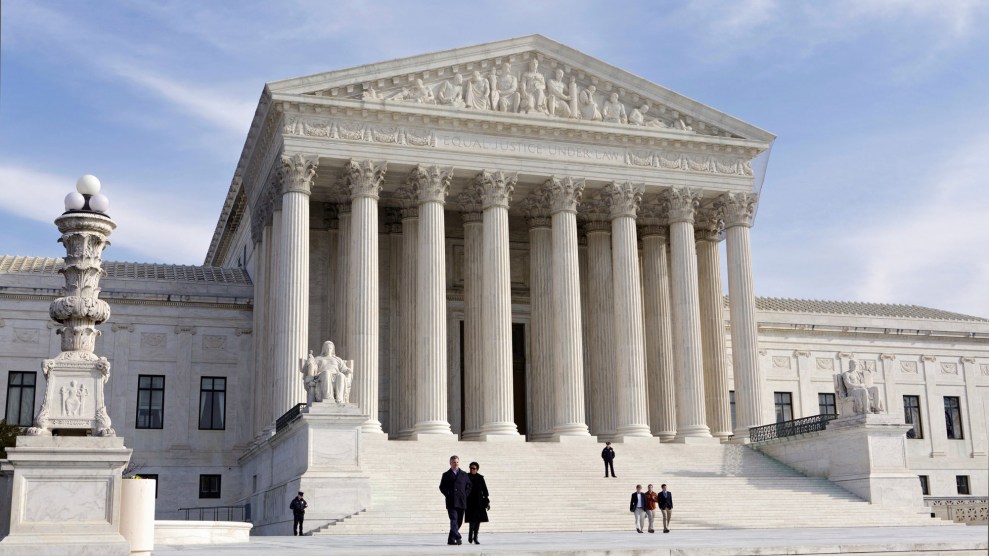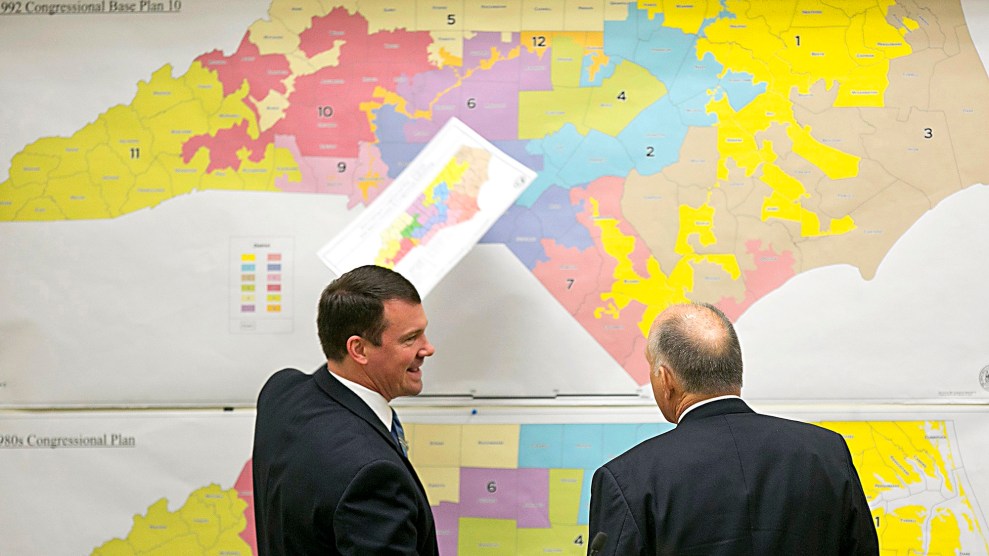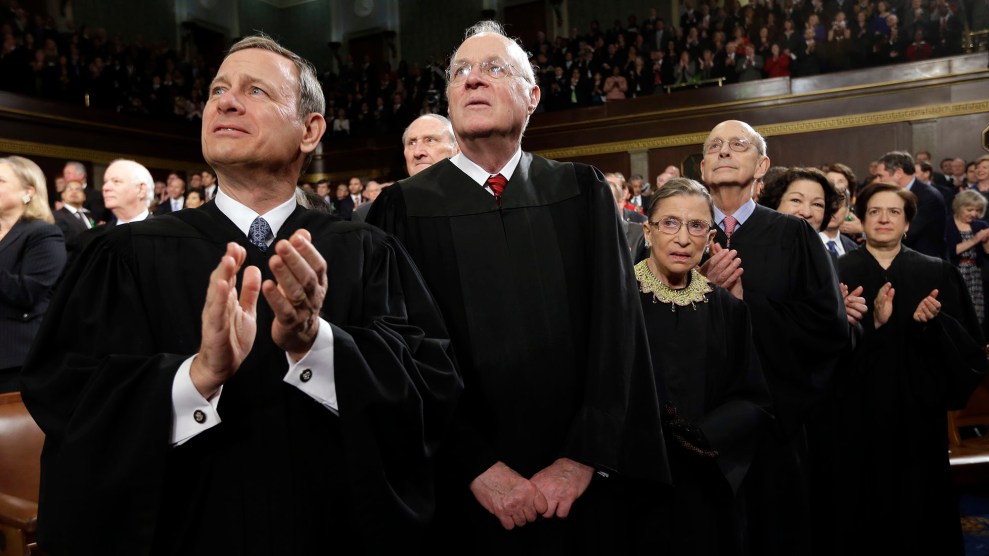
J. Scott Applewhite/AP
On Thursday night, the Supreme Court halted a lower court ruling that ordered North Carolina officials to revise its map of the state’s congressional districts. The decision comes 10 days after a three-judge panel found that Republican lawmakers in the state had erred in drawing the state’s congressional districts to limit Democrats’ electoral power in favor of Republicans’, violating the constitution.
As Mother Jones‘ Pema Levy pointed out at the time of the lower court ruling, the decision marked the first time a federal district court had ended a congressional map for partisan gerrymandering:
The nearly 200-page opinion states that the map “violates the Equal Protection Clause because it reflects a successful, and unjustified, effort by the General Assembly to subordinate the interests of non-Republican voters and entrench Republican Representatives in power.” It also argues that the map violates the First Amendment by burdening free speech and free association rights of voters who do not support Republicans. Finally, the court found that the map violates the Constitution’s “grant of authority to ‘the People’ to elect their Representatives”—in other words, rather than choose their representatives, their representatives chose their voters.
…
The state is now blocked from moving forward with the 2018 congressional elections using the current map, and and the court gave the legislature two weeks to create a remedial plan. Should the legislature fail to create a plan that the court deems constitutional in that time period, the court says it’s prepared to put in place a map drawn by someone it appoints.
Now North Carolina lawmakers are at least temporarily off the hook for creating a new map; the Supreme Court decision means that the state’s congressional districts will likely remain the same through the 2018 midterms, blocking a potential outlet for Democrats in their efforts to retake the US House of Representatives. The high court is currently wrestling with two other cases in Wisconsin and Maryland over whether partisan gerrymandering can be unconstitutional. The court’s decisions will likely impact North Carolina as well. Justices Ruth Bader Ginsburg and Sonia Sotomayor dissented from the Supreme Court’s order.








